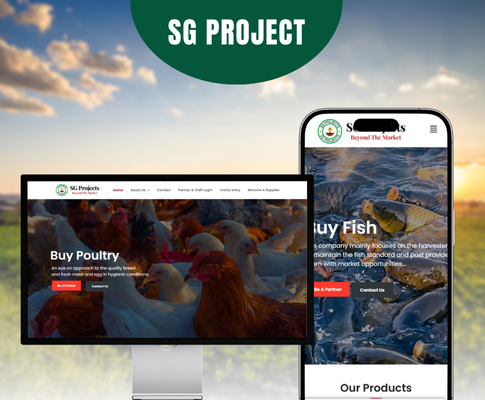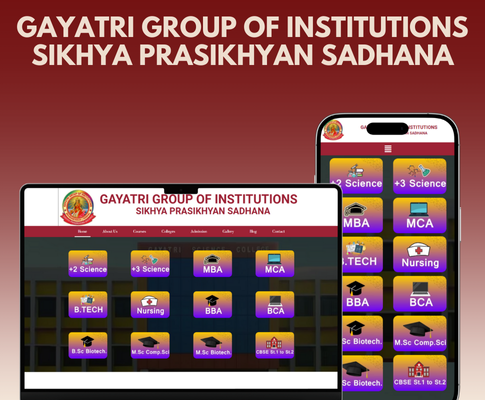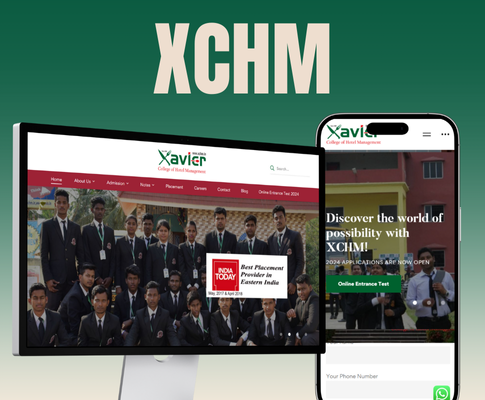Driving your
success with
reliable IT support.
Take charge of your business continuity with innovative IT Solution.

Take charge of your business continuity with innovative IT Solution.

Get
Everything you need effortlessly, with seamless
integration that puts all
your digital tools together!
Discover a range o solutions tailored to drive you business to new heights. Whether you're seeking cutting edge software development or seamless digital transformation, we're dedicated to steering you towards your success. Let us pave the way for you growth with our expertise in innovation software solutions and flawless digital strategies

Professional web development services for visually appealing and functional websites. Specializing in responsive design, e-commerce platforms, and custom web applications. Elevate your online presence with our exceptional solutions.
Learn More
Our mobile app development services deliver custom, user-friendly solutions for iOS and Android. We create innovative, scalable apps designed to enhance user experience and drive business growth.Expert mobile development services for iOS and Android platforms.
Learn More
Our software development services deliver custom solutions tailored to your business needs. We specialize in creating scalable, efficient, and innovative software to streamline operations and drive growth across various industries.
Learn More
Our digital marketing services help boost your online visibility with tailored SEO, social media, and PPC strategies. We drive targeted traffic, enhance engagement, and maximize your brand’s digital impact for growth.
Learn More
Our Search Engine Optimization (SEO) services improve your website's rankings, drive organic traffic, and increase visibility. We use proven strategies to enhance your online presence and boost long-term business growth.
Learn More
Our Social Media Management services create engaging content, grow your audience, and strengthen brand presence. We optimize strategies across platforms to boost interactions, drive traffic, and enhance customer loyalty.
Learn MoreDiverse Fields, One Expertise, Excellence Honed across Various Industries.
Our broad experience refines our abilities and enriches our understanding, enabling us to craft impactful solutions tailored to your need

Our expert craftsmanship ensures solutions that not only meet but exceed your expectations, delivering precisely what you need and more.

Our social media solutions are designed with expert precision, ensuring your brand not only meets but surpasses audience expectations

With our expertly designed healthcare solutions, we go beyond meeting expectations, offering exceptional care that improves patient outcomes.

Unlock the full potential of your online business with Nexpro Solutions! Our cutting-edge e-commerce solutions are designed to boost your sales.

Discover the future of real estate with Nexpro Solutions! Our innovative real estate solutions help you close deals faster.

Get more value for your money with Nexpro Solutions! We offer cost-effective solutions that don’t compromise on quality.
We've achieved great milestones, but there's still much ahead, and together, we look forward to continued growth.

We have worked with 400+ clients.

We've successfully delivered 430+ projects, turning innovative ideas into impactful solutions.

We've made a global impact with our solutions, reaching over 20 countries and counting.

Our strength lies in the expertise of our diverse team, with over 50 specialists from various fields driving our success.

We take pride in our workforce, where talented women make up 30%, leading with innovation and empowerment.

With 90% of our clients returning for future needs, their trust speaks volumes about our reliability and service.
Grow with our easy work progress

We sit with our client and discuss project goals, market conditions, competitors, and the current situation.

After our discussion, we prepare a customized plan for our client suitable for their requirements.

Finally, we start with the project and start optimizing the website. We measure and inform our clients about all the progress we're making.

We ensure to execute every measure that's required to help you reach your desired outcome.
We pick the latest and future-proof tech stack that best suits your business vision.

React Native

Flutter

Android Native

iOS

Swift

Xamarin

PWA
Ionic
Angular

Html

JS

React

CSS

Gatsby

NextJs

Nuxt

Vue Js

CodeIgniter

Go

GraphQl

Java

Laravel

Microsoft .net

Nest

NodeJs

Python

Symofony

Yii

PHP

Contentful

Magento

Shopify

Strapi

WooCommerce
Wordpress
Mongodb

Firebase

MySQL

Oracle

PostgreeSQL

SQL

SQL server

AWS

Azure

Google Cloud

Anisible
Bitbucket

Docker

Elastic Search
Github

Gitlab

Grafana

Jenkins

Kubernetes

Microsoft Azure

Terraform

Digital Ocean

Mesos

Openshift

Rackspace

Hp Quicktest

Jest

Jmeter

Postman

Selenium

SoapUI

Our clientele spans across the US, UK, Dubai, Australia, Qatar, Trinidad and Tobago, Canada, and India, where we deliver world-class services. Regardless of their location, we ensure our clients receive unparalleled support and expertise.





Through tech, we touch billions of lives across 8 countries with 350+ great minds
We highly appreciate the kind and stellar feedback from our customers immensely.

Working with Nexpro Solution has been a game-changer for our business. Their team understood our requirements perfectly and delivered a high-quality, custom software solution that streamlined our operations.

Nexpro Solution’s team is incredibly responsive and committed to deadlines. They kept us in the loop throughout the entire project, making sure every detail was taken care of.

Our experience with Nexpro Solution has been outstanding. They provided us with an innovative, custom app that was beyond what we could have imagined.

The Nexpro Solution team is fantastic to work with! Their knowledge in both web and app development is extensive, and they delivered a product that exceeded our expectations.!

Since we partnered with Nexpro Solution, our online presence has grown tremendously. Their digital marketing strategies, paired with flawless web development, have driven impressive results for our business.

Nexpro Solution transformed our outdated processes into an efficient digital workflow. Their software solutions are not only user-friendly but also tailored to our specific needs.

Our partnership with Nexpro Solution has been built on trust and transparency. They provide realistic timelines and always deliver on their promises.

Nexpro Solution's innovative approach to software development helped us overcome significant challenges in our operations. Their creativity and technical skills led to a solution that has improved our efficiency dramatically.

The user experience design provided by Nexpro Solution is phenomenal. They created an intuitive interface that our users love, making it easy for everyone to navigate and utilize the software effectively.
We highly appreciate the kind and stellar feedback from our customers immensely.






 Cost-Effective Solutions
Cost-Effective Solutions Timely Delivery
Timely Delivery Privacy Guarantee
Privacy Guarantee Weekly Update
Weekly Update Strategic Partnerships
Strategic Partnerships